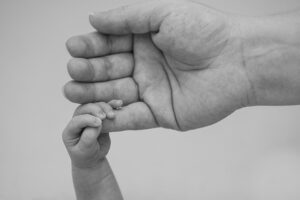There are few more monumental and personal decisions than whether or not to become a parent. It is a 24/7 commitment not to be made lightly since it impacts the child, and literally, impacts society on a grander scale.
 A young woman who had gotten pregnant unexpectedly, but then had a miscarriage, came away from the experience with a profound gem of wisdom, as she expressed, “Although I was sad at first, I realized that when you become a parent, you aren’t just raising a child. You are raising a future adult.”
A young woman who had gotten pregnant unexpectedly, but then had a miscarriage, came away from the experience with a profound gem of wisdom, as she expressed, “Although I was sad at first, I realized that when you become a parent, you aren’t just raising a child. You are raising a future adult.”
There are numerous reasons you might want to become a parent, some by happenstance, some because of messages you have been given, such as:
- Parents’ expectation of becoming grandparents
- Ticking biological clock
- Your friends are starting families.
- Your partner wants to be a parent.
- There is a timeline to follow.
- You want a big family
- You desire to experience what you didn’t have as you were growing up.
Questions to ask yourself as you consider whether to become a parent: “Are any of the above sufficient reasons?” “Am I all in, or are my shoulders shrugging indecisively?” (More questions to follow below.)
I have often worked with clients facing the decision to become parents, some who are already more than knee deep in the experience. The numerous conversations I have had with my clients who don’t want to repeat multi-generational family patterns have focused on what has emerged is a ‘searching and fearless’ exploration of what went wrong and what went right in the client’s childhood that they either want to emulate or avoid. There have been some clients who vehemently expressed that because of their own upbringing, they do not ever want to become a parent, either by birth or adoption.
Conscious choice can lead to better outcomes when it comes to parenting. Some questions to ask before embarking on the journey:
- Can I afford to raise a child? According to Lending Tree, “the nationwide average for the cost of raising a child is $21,681 per year. The study took into account rent, food, child care, clothing, transportation, health insurance premiums and state tax exemptions or credits. It did not include the cost of college.”
- Am I willing to give up sleep, accustomed activities, and routines to cater to the needs of this helpless little human being?
- Can my partner and I balance devoted parenting with solid self-care?
- Do I have support, whether from the other parent, or extended family?
- Have I or am I willing to address my family of origin issues?
- Have my partner and I had sincere conversations about our own experiences of being parented?
- Have my partner and I agreed on sharing responsibilities in the home, both for childcare and household chores?
- DO my partner and I have the same ideas of how to discipline our children and how to raise them?
- What messages did I hear from my parent(s) about what it means to be a parent?
- How was I encouraged or discouraged by my parents as I grew and developed?
- Can I fast forward and imagine this cuddly baby at 5, 10, 15, 20 and beyond? Can I accept that there will be obstacles and pitfalls and that we can learn from each other? One mother of a then 14-year-old, still smiles as she remembers her son telling her that he was “an undercover angel, sent to teach you patience.” He is now 37 with two children of his own.
- Can I seek professional support (therapy, parenting classes, anger management), if I find myself missing the mark with my children?
- Are there positive role models in my life for healthy, loving parenting?
- How about journaling about what I imagine it would be like to be a parent?
A growing number of people are opting out of parenting. Reasons may include:
- Not wanting to bring new life into a world that is in chaos and experiencing major climate change and the calamities associated with it.
- Their own ACE’s (Adverse Childhood Experiences)
- Feeling that they are not of the temperament to raise a child.
- Choosing a child-free life gives them more freedom and flexibility to pursue personal goals.
- Not having a supportive partner to share in the journey.
- Their own mental health and/or addiction issues which might impact their parenting skills.
- Genetic predisposition to physical or psychological conditions.
- Fear of losing intimacy and time in the relationship.
Know that you are not alone, if you are hesitant about becoming a parent. According to a February 2024 Pew Research Center poll, 30% of 18- to 34-year-olds without kids aren’t sure if they want children, and 18% say they don’t want any. That follows a rise between 2018 and 2021 in the percentage of nonparents under 50 who said they were “not too likely” or “not likely at all” to have kids (16% versus 21% and 21% versus 23%, respectively).
For further information, here are a few books for those considering being childless by choice.
